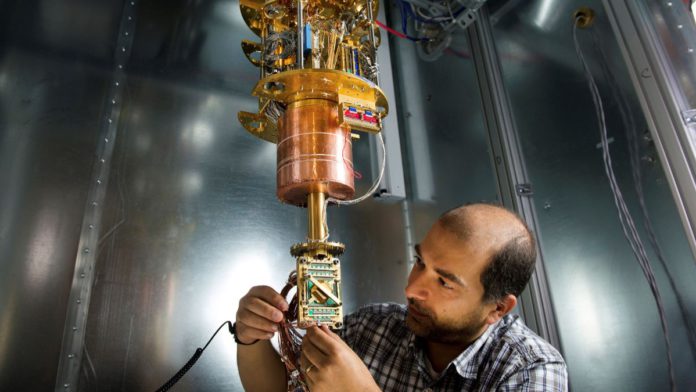For almost five years now, Volkswagen, a German automotive company, has been finding new ways to apply quantum computing to the automotive industry. VW has had a dedicated research team for quantum computing since 2016. Since then, VW has teamed up with Canadian quantum computing firm D-Wave and Google’s quantum computing unit for advancing its research.
In fact, Volkswagen was the first automaker company to show a practical application of quantum computing for route and traffic management. In 2019, VW, under the leadership of data scientist Florian Neukart demonstrated the first use of quantum computing in tackling traffic congestion using a D-Wave 2000Q™ quantum computer. They collected data from 418 taxi cabs in Beijing and developed a mobile app for predicting the best route for any given destination. They tested the model with participants of the 2019 WebSummit in Lisbon to minimize wait times for passengers and bus travel times while avoiding traffic jams.
“We see great potential for quantum computing across our entire business,” said Florian Neukart, Director, Volkswagen Group. “Many challenges in the automotive industry can benefit from the inherent power quantum computing can generate.” He also added, “We’re not interested in doing research for research’s sake. We want to bring this technology into the real world.”
Read more: Google, Microsoft, and others to invest billions to improve Cybersecurity
The Volkswagen Quantum Computing team is now applying the technology to vehicle pricing to strike the right balance for customer demand. Further, the VW team sees the potential to apply the tech for developing new materials, figuring out the location of electric vehicle charging stations for maximizing their usefulness, and much more.
Now, they are using the algorithms for maximizing the efficiency in the factory-paint shops. Traditionally, in paint shops, a small number of vehicles were painted with a particular primer before stopping the line and switching to another primer. Since every vehicle required one of the two primers depending on the final color, this increased cost and slowed down production. However, the new algorithm allows factories to run the production line with significantly more vehicles in a row. The new system can go online at Volkswagen factories in Germany and eventually worldwide soon.


